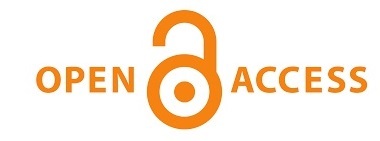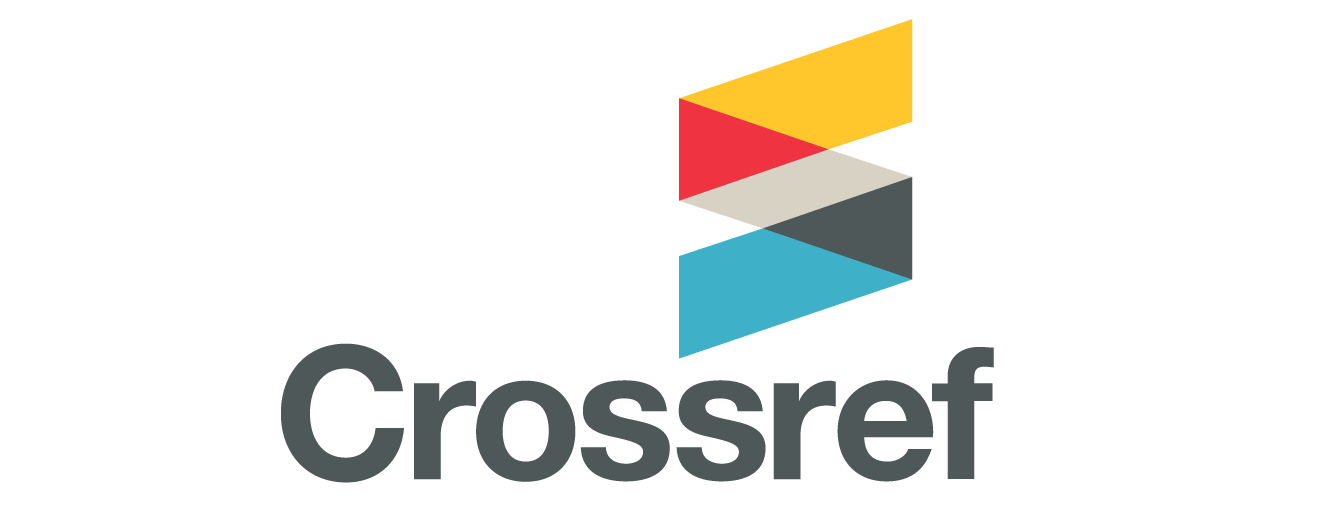Discretization Method for Describing Complex Objects that are Difficult to Formalise
DOI:
https://doi.org/10.15407/sofs2024.02.034Keywords:
discretization, complex object, difficult to describe object, formalization, syntactic formalization, biosphere, noosphere, quasi-physical objectAbstract
The emergence of complex, hard-to-describe objects is a characteristic trend in modern science. To build a model of such an object, its preliminary description is required, which is a rather serious problem. Therefore, the search for methods to describe such objects is an urgent task. For physical objects, this process is well described and researched. For complex, difficult to formalize non-physical objects, the emergence of which is often caused by the development of society, such approaches are absent. The article presents the results of a discretization method developed by the authors based on the approach of M. Bunge to describe complex, difficult-to-formalize objects that occur in many economic, social, environmental and other systems. The sources of the study are scientific works of leading Ukrainian and foreign scientists, general scientific methods of cognition (analysis, synthesis, induction, deduction, method of analogies, etc.), as well as special methods of analysis: hypothetical-deductive, logical, structural. It is established that the method of discretization for describing complex objects allows to move on to modelling complex socio-economic processes. The article defines the concepts of the quasi-physical world and quasi-physical objects introduced by the authors; it is substantiated that the study of the quasi-physical world should be accompanied by the study of quasi-physical objects, which differ from physical objects in that they are specially constructed objects. The article provides examples from various subject areas where the concept of a quasi-physical (synthetic) object plays a major role, and provides a generalized description of such an object. It is proposed to use the quasi-physical approach to analyze the problems of solid waste disposal and assess the general condition of an enterprise (company). It is noted that the author’s approach will help scientists: (i) more accurately define the scope of research; (ii) specify the object and subject of research, structure its characteristics and, on this basis, put forward hypotheses and set research objectives; (iii) better understand what knowledge and assumptions underlie the object under study and how they are interrelated, as well as clearly formulate the problem and purpose of the research; (iv) choose relevant procedures and methods to achieve the goal when analyzing data.
References
Glinsky, B.A. (1965). Modeling as a method of scientific research. Minsk: Publishing House of Minsk State University [in Russian].
Neuimin, Y.G. (1984). Models in science and technology: History, theory, practice. Leningrad: Nauka [in Russian].
Rosenblueth, A., & Wiener, N. (1945). The Role of Models in Science. Philosophy of Science, 12 (4), 171—175. https://doi.org/10.1086/286874
Naumov, G. (2004). Noosphere in the past and future. Science and Life, 9, 92–97 [in Russian].
Wertheimer, M. (1987). Productive thinking. Moscow: Progress [in Russian].
Losev, A.F. (1988) The daring of the spirit. Moscow: IPL [in Russian].
Bunge, M. (1996). Finding Philosophy in Social Science. London: Yale University Press.
Rozov, N.S., Wertheim, Y.B., Sizentsev, G.S., Filippov, S.I., & Goroshko, V.V. (2001). Development and testing of the method of theoretical history. Novosibirsk: Nauka [in Russian].
Shevchenko, G.Y., Bilozubenko, V.S., & Marchenko, О.А. (2022). The formation of the corporate scientific environment. Science and Science of Science, 2 (116), 12—24. https://doi.org/10.15407/sofs2022.02.012
Shapiro, D.I. (1977). On human-machine methods for solving one class of problems. Issues of Cybernetics. Theory and Practice of Situational Management, 18, 82—88 [in Russian].
Chorayan, O.G. (1987). The concept of probability and vagueness in the work of the brain. Rostov-on-Don: Publishing House of Rostov-on-Don State University [in Russian].
Pospelov, D.A. (1986). Situation management: theory and practice. Moscow: Nauka [in Russian].
Shcherban, A.B. (2010). Classification of tasks of identification and structural analysis. University Proceedings. The Volga Region. Technical Sciences, 2, 14–23 [in Russian].
Shcherban, A.B. (2010). A structural and syntactic approach to finding alternatives for controlling complex systems. Scientific and Technical Proceedings of St. Petersburg State Pedagogical University, 3 (101), 45—69 [in Russian].
Nelson, R.J. (1976). Structure of Complex Systems. Proceedings of the Biennial Meeting of the Philosophy of Science Association, 2, 523—542. https://doi.org/10.1086/psaprocbienmeetp.1976.2.192400
Groumpos, P.P. (2017). A critical overview of modelling and simulating methods for complex dynamic systems. SNE Simulation Notes Europe, 27 (4), 213—223. https://doi.org/10.11128/sne.27.on.10398
Konverskiy, A.E. (2017). Logic. Kyiv: Kyiv University Publishing House. [in Ukrainian].
Zakrevskiy, A.D. (1988). The logic of recognition. Moscow: Nauka i tekhnika [in Russian].
Shevchenko, G.Y., Shumeyko, O.O. & Chornenko, M.V. (2020). Personalized medical web services. International conference “Information technology and computer modeling”. Ivano-Frankivsk: Holiney O.M., 70—73 [in Russian].
Obidina, Y.S. (2017). Interaction of natural and human sciences: myth, methodology and ontology. The Spiritual Sphere of Society, 14, 79—88 [in Russian].
Beshelev S.V., & Gurvich, F.G. (1973). Expert assessments. Moscow: Nauka [in Russian].
Khanin, I.G. (2018). Issues of noospheric development of economy and cognition. Dnipro: New ideology [in Ukrainian].
Marx, K. (1955). Income and its sources. The vulgar political economy. Moscow: Publishing House of Political Literature [in Russian].
Polyakov, M.V. (2017). Noospheric approach to the development of cognition and economy. Dnipro: New ideology [in Russian].
Vydrin, O.V. (2009). Scientific communication: towards a research methodology. Bulletin of Chelyabinsk State University, 42, 112–117 [in Russian].
Rudy, A.S. (2016). Forms and features of scientific communications. Manuscript, 4 (2), 136—138 [in Russian].
Savchenko, A.P. (2017). Open information space for scientific communication as a factor in the development of the knowledge economy in Russia. State and Municipal Administration, 1, 129—135 [in Russian].
Shirokanova, A.A. (2013). New role and forms of scientific communication in the information age. Sociology, 1, 103—116 [in Russian].
Shevchenko, G.Y., & Bilozubenko, V.S. (2019). Structural model of scientific communications. Science and science of science, 4 (106), 37—51. https://doi.org/10.15407/sofs2019.04.037 [in Russian].
Roberts, F.S. (1986). Discrete mathematical models with applications to social, biological and environmental problems. Moscow: Nauka [in Russian].
Vernadsky, V.I. (2004). Biosphere and noosphere. Moscow: Iris-Press [in Russian].
Artemiev, V.I. (2003). What is business intelligence? Open systems, 4. URL: https:// www.osp.ru/os/2003/04/182900 (last accessed: 22.12.2023) [in Russian].
Thomsen, E. (1997). OLAP Solutions: Building Multidimensional Information Systems. Wiley Computer Publishing, 688.
Kimbal, R. (1996). The Data Warehouse Toolkit: Practical Techniques for Building Dimensional Data Warehouses. John Willey & Sons.
Drucker, P. (1998). Effective management. Economic problems and optimal solutions. Moscow: GRAND Publishing and Trading House [in Russian].
Akoff, R., & Emery, F. (1974). On purposeful systems. Moscow: Sov. Radio [in Russian].
Kononenko, P.I. (2003). Strategic program-targeted management of the production and economic system. Moscow: ITC Dashkov and K. [in Russian].
Downloads
Published
How to Cite
Issue
Section
License
Copyright (c) 2024 Science and Science of Science

This work is licensed under a Creative Commons Attribution-NonCommercial-NoDerivatives 4.0 International License.





